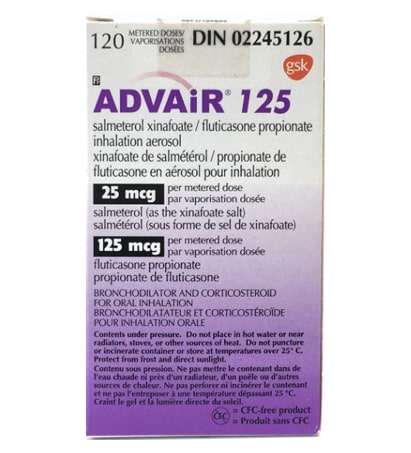What is Advair HFA used for?
Advair HFA (inhaled corticosteroid ICS and beta agonist) is used to prevent asthma attacks and avert COPD (chronic obstructive pulmonary disease) blowups. This can prevent your COPD symptoms from becoming worse. It contains salmeterol and fluticasone as active ingredients and they function as a steroid and bronchodilator to manage emphysema and/or chronic bronchitis. People with COPD are likely taking this daily to manage their symptoms while this can treat sudden shortness of breath for asthma in patients. There may be adverse effects if this is used incorrectly so be sure you are informed why you are taking this. If you feel you have increased risk of asthma, increased risk of serious asthma or may suffer from acutely deteriorating asthma, contact your doctor to make sure that it is still appropriate to take Advair.
Advair HFA Inhaler Information
How to use Advair HFA Inhaler?
What are the side effects of Advair HFA Inhaler?
What are the drug interactions with Advair HFA Inhaler?
Advair HFA Inhaler coupon
Disclaimer : This primer is intended to provide basic information on this medication and is not intended to replace the medical advice provided by a certified medical professional. Any prescription drug use needs to be approved by your doctor. Do not avoid or ignore any advice provided by your physician in favor of what is written here. Always consult with a pharmacist or doctor before taking this medication and seek counselling from them if you have any questions or concerns about your medication.



